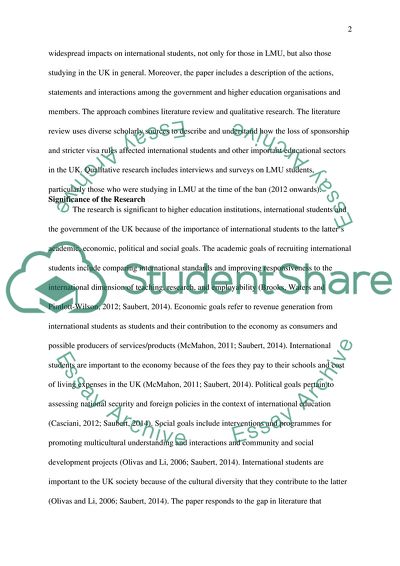Cite this document
(The Loss of Sponsoring License of London Metropolitan University Literature review Example | Topics and Well Written Essays - 4750 words, n.d.)
The Loss of Sponsoring License of London Metropolitan University Literature review Example | Topics and Well Written Essays - 4750 words. https://studentshare.org/education/1876540-what-are-the-experiences-of-international-students-currently-studying-at-london-metropolitan-university
The Loss of Sponsoring License of London Metropolitan University Literature review Example | Topics and Well Written Essays - 4750 words. https://studentshare.org/education/1876540-what-are-the-experiences-of-international-students-currently-studying-at-london-metropolitan-university
(The Loss of Sponsoring License of London Metropolitan University Literature Review Example | Topics and Well Written Essays - 4750 Words)
The Loss of Sponsoring License of London Metropolitan University Literature Review Example | Topics and Well Written Essays - 4750 Words. https://studentshare.org/education/1876540-what-are-the-experiences-of-international-students-currently-studying-at-london-metropolitan-university.
The Loss of Sponsoring License of London Metropolitan University Literature Review Example | Topics and Well Written Essays - 4750 Words. https://studentshare.org/education/1876540-what-are-the-experiences-of-international-students-currently-studying-at-london-metropolitan-university.
“The Loss of Sponsoring License of London Metropolitan University Literature Review Example | Topics and Well Written Essays - 4750 Words”. https://studentshare.org/education/1876540-what-are-the-experiences-of-international-students-currently-studying-at-london-metropolitan-university.


